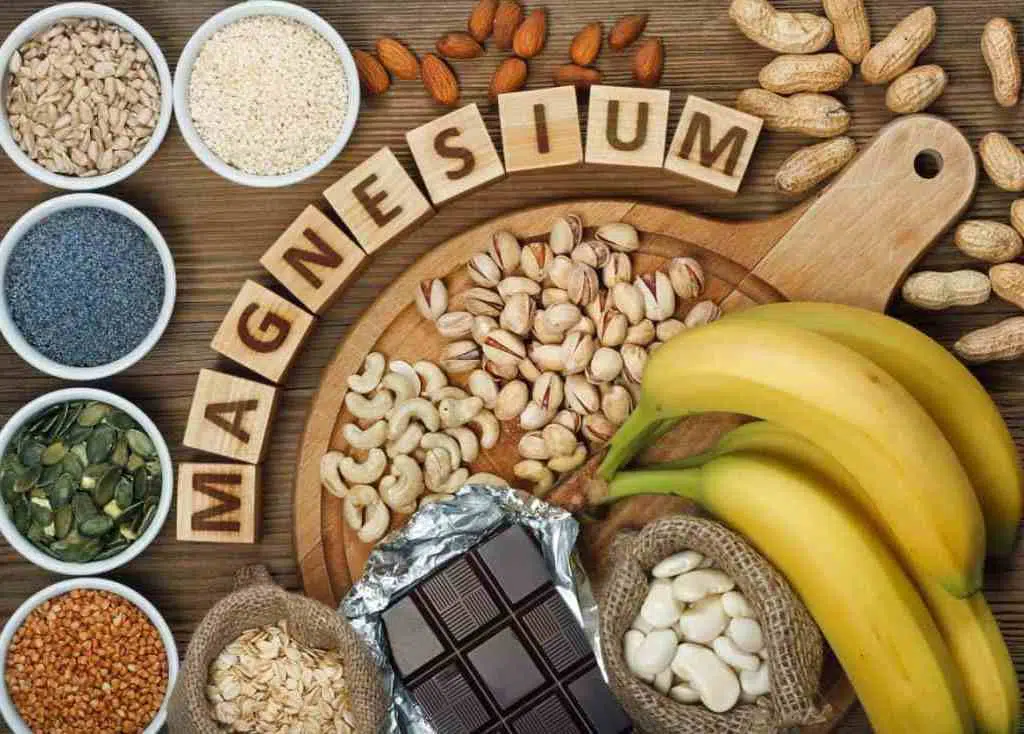Magnesium is essential for more than 300 metabolic reactions in cells. It helps us make fats and protein and offsets Calcium for properly controlled blood clotting. It holds calcium in the teeth to make teeth more resistant to cavities. It is a vital nutrient. Most of magnesium is found in the skeleton and 25% if found in the muscles.
We need more Magnesium the more we exercise, for two reasons.
One, we need Magnesium for energy production. If our tissue levels are deficient our energy producing cycle can slow down, no matter what your genes may indicate.
Two, Magnesium and calcium work together to co-ordinate muscle contraction and relaxation. Calcium in the muscle triggers contraction and magnesium triggers relaxation. Muscle cramps are an indication of deficiency.
Magnesium and calcium also work together to contract and relax capilliaries, hence Magnesium is a potent vasodilator, opening blood vessels and lowering blood pressure. There have been many studies conducted that show magnesium supplementation is of value in lowering blood pressure.
The other tissues with the highest concentration of Magnesium is the heart and brain. Research shows that this important mineral is critical for cardiovascular health. Not just in regulating heart muscle contraction, but also by lowering blood pressure. In addition, studies show that Magnesium deficiency increases LDL Cholesterol and Triglycerides and lowers HDL cholesterol levels.
Diabetics too need Magnesium. It plays a central role in the secretion and action of Insulin. Without adequate Magnesium levels within the body’s cells, control over blood sugar levels is impossible.
As we age, and during the winter, your body needs magnesium more than ever. It can help to boost energy levels and aids sleep. Low Magnesium levels in the brain lowers levels of serotonin (our happy mood chemical) and melatonin (our sleep-wake chemical), both of which are important in preventing SAD.
Green leafy vegetables are a good source of magnesium because magnesium is the central ion in chlorophyll.
TIPS:
- Eat at least one portion of green leafy vegetables every day (one portion is a cereal bowl full)
- Ask Chef at Lane’s Café to add spinach to your breakfast or lunch.
- Make an appointment to discuss your specific Magnesium needs with Jenny Hargreaves our resident Nutrition Practitioner.
By Jenny Hargreaves Registered Nutrition Practitioner, Lanes Health Clubs





